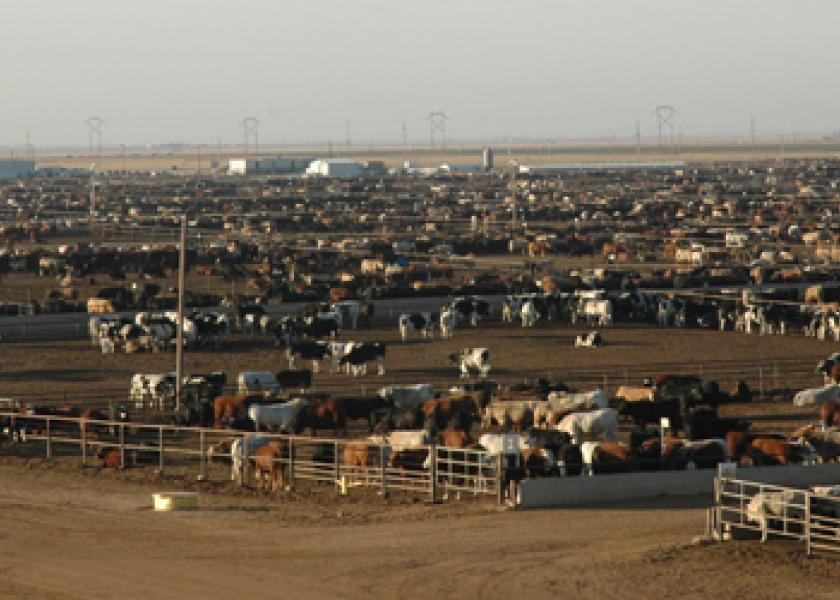Cargill Plant Closing Will Eventually Restore Balance

While the short term implications sent the cattle futures market on a bumpy ride this week, Cargill's plan to stop production at it's Plainview, Texas, facility is not unexpected.
"It's not surprising. Many have said the industry expected to see a reduction in feeding and slaughter capacity due to tighter supplies," says Oklahoma State University LIvestock Economist Derrell Peel. And while initially a shock, this is part of a process that will eventually help restore balance to the market over the next few week.
"Unfortunately, it will have a regional impact on those who will be out of work and it increases pressure for those feedlots near the plant due to increased shipping cost to other facilities," explains Peel.
But overall, it could help packers improve margins. University of Missouri Extension Economist Ron Plain agrees that beef packers have been struggling with surplus capacity.
"The 2012 calf crop was smaller than the year before for the 17th consecutive year. Beef packer gross margin (value of product sold minus cost of a steer) averaged $117.42 per head in 2012. That was $16.10 under 2011’s average and $55.10 lower than in 2010, and the lowest annual average since before 2004. The plant’s closure should enhance packer margins by lowering fed cattle prices."
While Peel does not know the amount of beef coming out of the Plainview plant, he estimates that the reduction of beef produced at this plan would be about the same in the reduction of steer and heifer slaughter over the last few months.
"The Southern Plains has been pulling back on supplies due to back-to-back droughts. And while the futures market will tend to over react to the news initially, overall this should help restore some balance to offset reduced supplies."
Michael Martin, Director of Communications for Cargill, spoke with AgriTalk radio this morning. He stated that continued drought is the cause of this plant shut down. "Cattle liquidation has occurred in the area for three years and has lead to over capacity in beef processing in the area." There are four large beef processing plants in that area fighting for smaller supplies of cattle. Even if herd rebuilding started sooner rather than later, it would take years for supplies to be adequate to boost beef processing capacity. So the hope of reopening the plant is diminished by continued drought.
For consumers, Martin says the drought and higher feed costs will ultimately increase retail beef pricing. For now, however, increased carcass weights are offsetting the reduced numbers. You can listen to the full interview and radio show:







